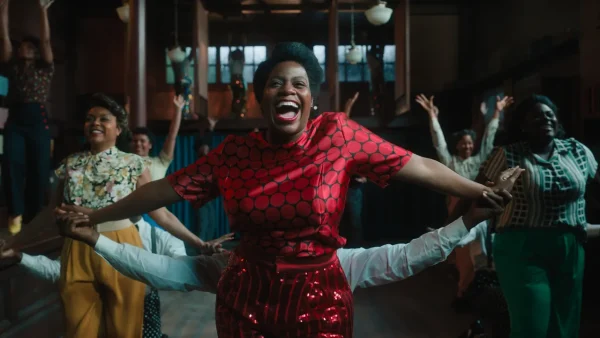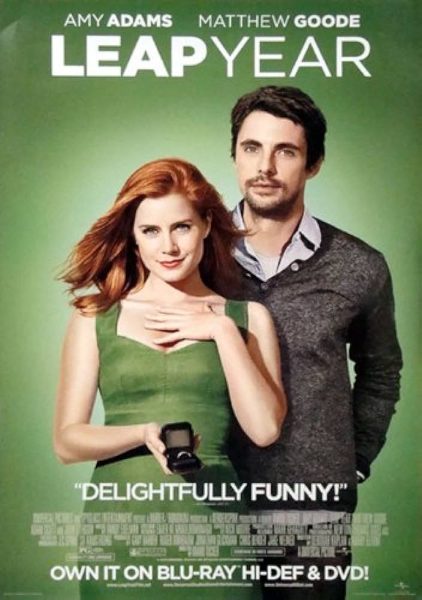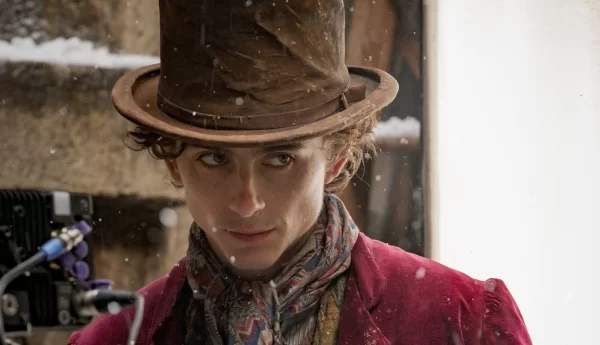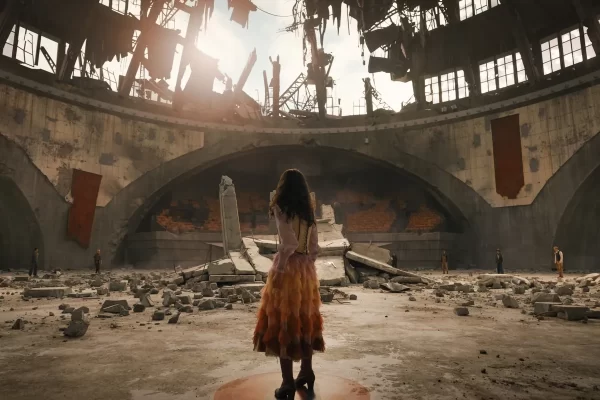‘Black Mirror: Bandersnatch’ review
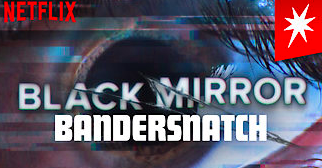
Bandersnatch cover photo from Netflix
February 18, 2019
Coinciding with the popular TV series, “Black Mirror,” a Twilight Zone-esque science fiction show, Netflix recently released “Black Mirror: Bandersnatch.” This movie is a choose-your-own-adventure movie depiction of young video-game loving teenage boy Stefan (Fionn Whitehead) creating his very own game based on his favorite book, Jerome F. Davies’ “Bandersnatch.” The movie follows his adventure with Tuckersoft’s video game designer Colin Ritman (Will Poulter) as well as Stephan’s growing hatred towards his father (Craig Parkinson).
First and foremost, Bandersnatch is not real. Who’s to say how the idea came about, but it seems to be for the best. Faux author Davies was said to have murdered his wife as he was experiencing mental health episodes due to his creation of the book, which turned out to be his breaking point. Throughout the course of this movie, the viewer is given choices. They begin innocently, with small things like cereal and music, things that seem to have minimal consequences. As the story progresses, they get more and more worrisome and violent. Stephan fighting with his therapist, doing drugs, punching his father. This unique element of the independent episode is what I had initially believed to be why it was becoming so popular, but there was more to it.
The entire story centered around Stephan falling down the same delirious rabbit-hole that Davies did. When the Tuckersoft video game company offered to buy the game from Stephan, the viewer was able to choose to work on it in the studio with other professionals or to work on it alone in the comfort of his own home. If you choose to work on it in the studio, the episode “ends” very quickly with a few more scenes and then a review of this version of the game. It then sends you back. Essentially, most of the endings are similar. They show a review of the game after it gets released, all with different feedback reflecting the choices of the viewer, and then you get sent back to an earlier point in the story where you can choose the other path. It’s interesting how you can actually explore every possibility and see all the outcomes and experience Stephan descending farther from sanity during the creation of the game.
Somehow, the takeaway of this episode was both my favorite and least favorite aspect. There are many different ways it could be interpreted. First and most obviously, the episode shows not to work yourself too hard and bite off more than you can chew. This is seen when Stephan struggles further into madness after not accepting help from the studio. Second, it shows that you can’t trust everyone, sometimes you can’t even trust your family. This can be seen with a few options. One of which being whether or not Stephan should take LSD with Colin, if you choose no, Colin puts it in Stephan’s drink anyway. The results are horrible. It can also be seen with one of the wildest endings involving Stephan’s father and a research project, but you’ll have to find that one yourself. The third takeaway is what I believe to be the worst – the episode constantly reiterates that you are not in control, someone else is always making choices for you. This one is less applicable to everyday life as there isn’t someone with a remote clicking us in one direction or the other, but it is a horrifying thought without a doubt. The final and most important, be careful what you wish for. Everything Stephan believed he wanted just led him farther and farther away from who he really is.
All in all, this episode was incredible. It was terrifying and left me shaking, contemplating everything (in the least delirious way possible). It’s something that you’ll need to set a few hours aside for if you want to explore every ending, but it left you with a message and a lesson. It is entirely worth the time it takes, even if the only thing you get out of watching it is simply an ice breaker for a conversation.










